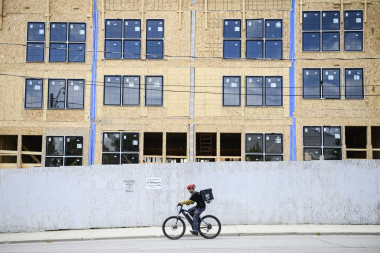The housing crisis is not just a supply issue. Here are two solutions to fix demand
People are finally talking about shifting income tax to take some of the money out of the housing market:
First:
a lifetime cap of $1-million on the personal residence capital gain exemption […] would limit unproductive investment in the real estate sector by discouraging retirement strategies based on the gains made from selling a house. It would also stop the investment strategy of buying a house, renovating, living in it the minimum amount of time to claim the tax credit and then flipping it for a tax-free gain.
They note that the lifetime cap wouldn’t hit most Canadians in lower-cost communities. It should mostly hit higher end houses and higher income taxpayers.
Second:
a limit applied to the amount of interest that can be recorded as a business expense for single-family residences let as rental properties
They’re suggesting these changes because
investors are the fastest growing mortgage segment with a 30-per-cent share of mortgaged home purchases nationally in the first part of this year, up from 19.6 per cent in 2020. They are now a bigger segment than repeat homebuyers and, over the past few years, have taken 6 per cent of market share from first-time buyers



Add comment